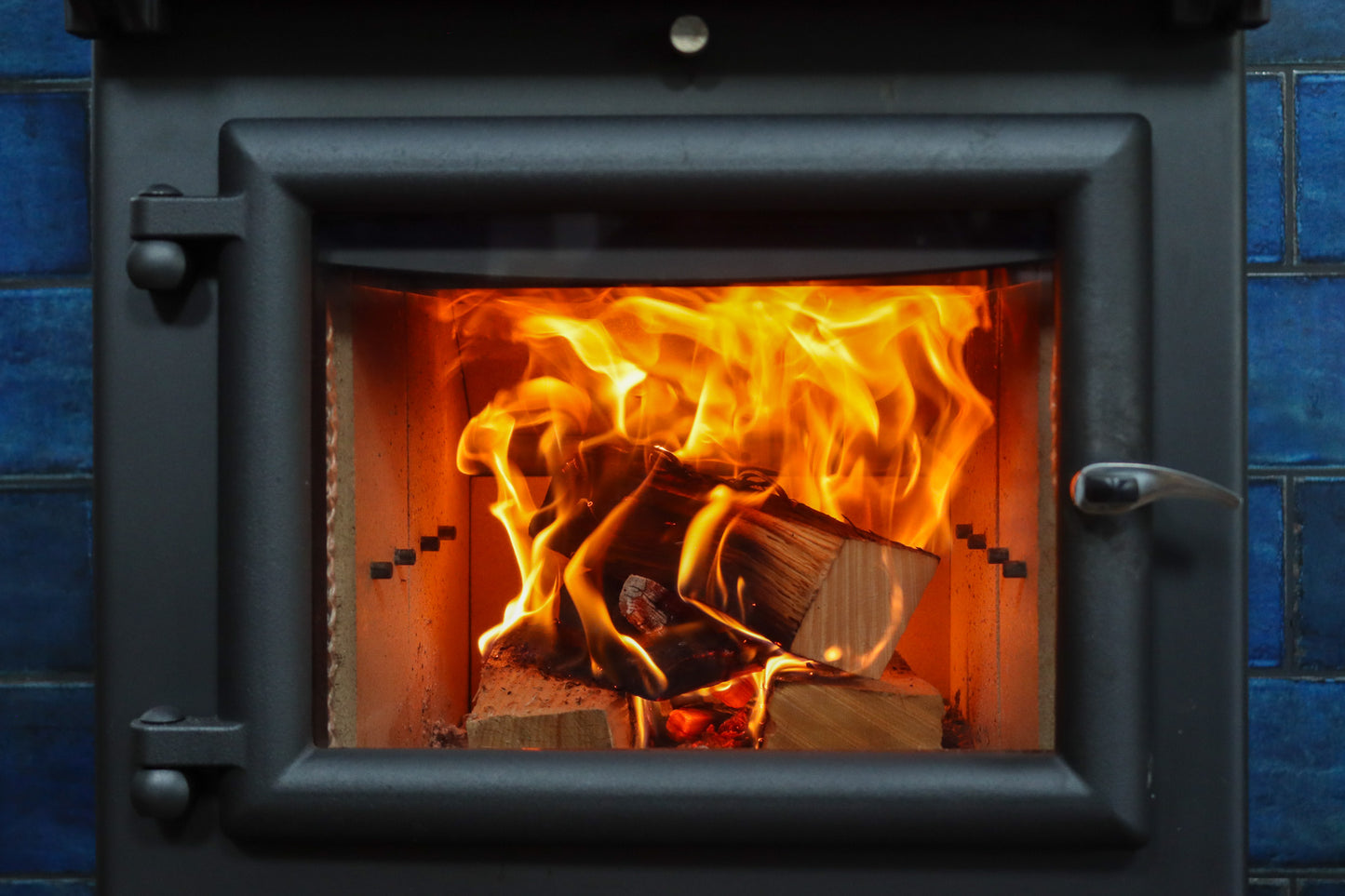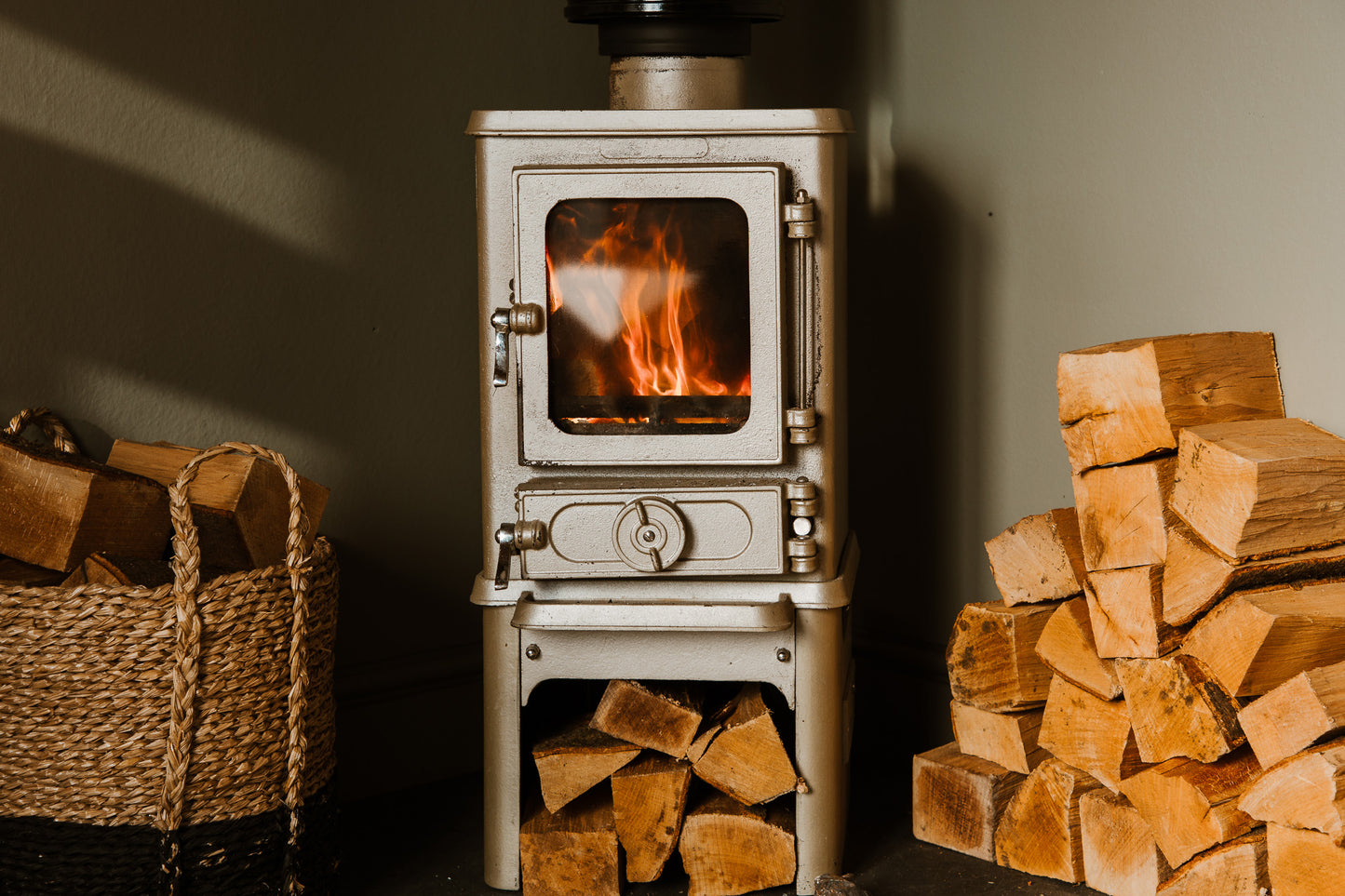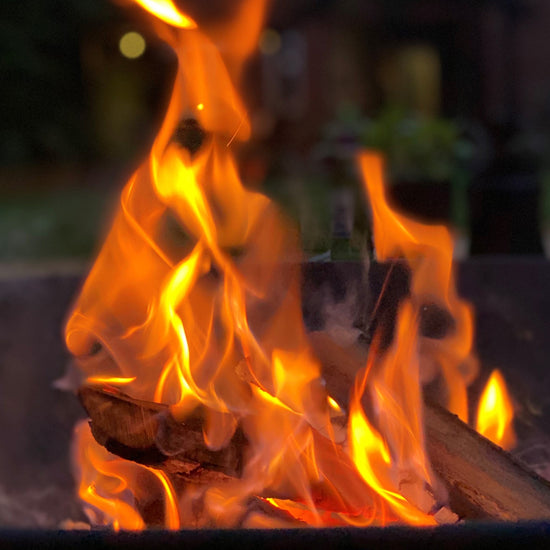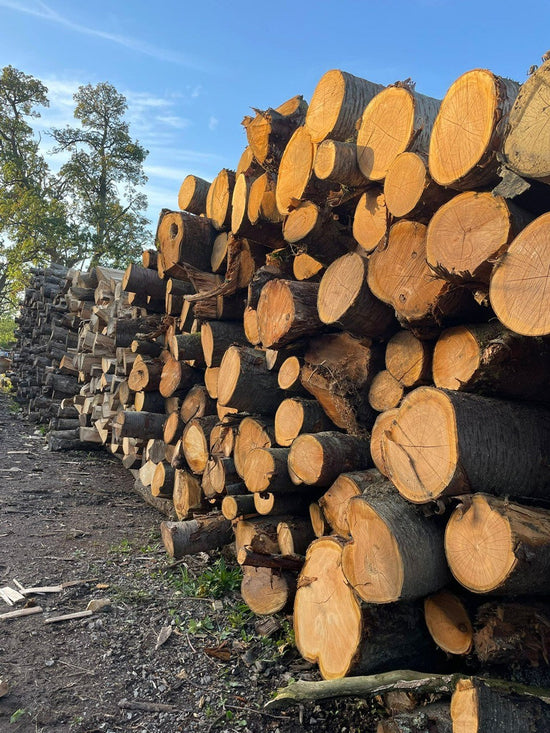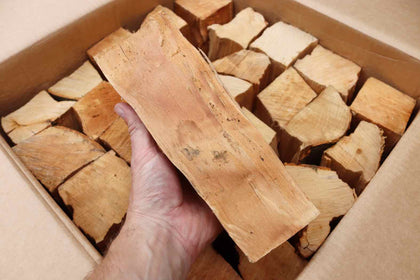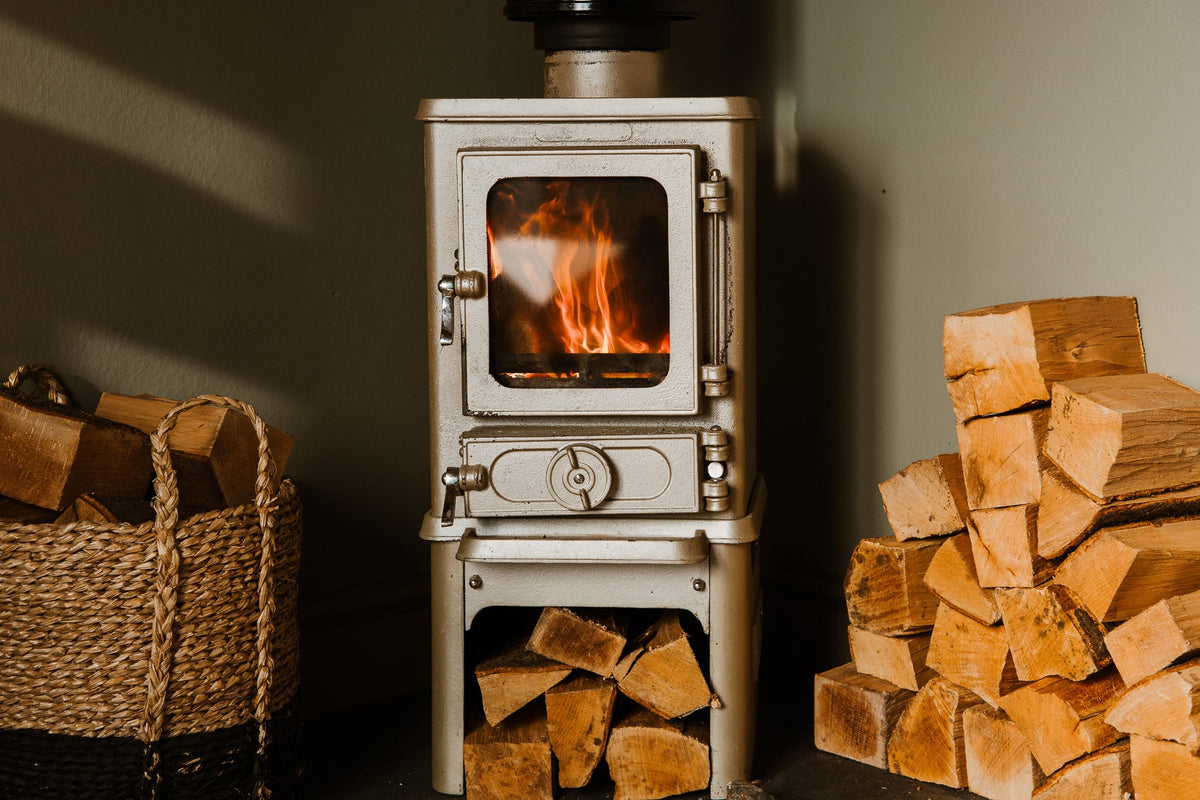

The best logs to use in your log burner are British hardwood logs, kiln-dried to below 20% moisture and cut to the right length and thickness for your wood burner.
Jump to:
Why should I use hardwood logs in my log burner?
Hardwood logs are better for your log burner as they are much more dense than softwood logs, so they burn longer which means you use less. Softwood logs might be cheaper than hardwood logs, but it's usually a false economy.
Softwood also has a higher resin content than hardwood so it spits and emits a lot more smoke. It's not pleasant to sit around a smoky fire, but inhaling too much smoke is also dangerous for your lungs and can damage your health, so it's important to minimise the smoke by using only hardwood logs in your log burner.
Softwood kindling works brilliantly to start a fire, but once you have a roaring kindling fire, you should only ever use hardwood logs to keep the fire in your log burner going.
Why should I use kiln-dried logs in my log burner?
Kiln-dried logs can be reliably dried to less than 20% moisture, which means they burn longer, hotter and with less smoke than seasoned or wet logs.
When wood is first cut, it contains a lot of moisture (sometimes up to 60%) which needs to dry out to less than 20% moisture before the wood can be burned. If you try to burn wood before it is properly dry, it will be difficult to light, burn with a low flame so you won't get a good heat output and there will be lots of unpleasant and unhealthy smoke and soot.
Kiln-dried logs with less than 20% moisture are best for your log burner because your fire will start easily, the logs will burn hotter and for longer, and you will minimise the smoke emitted, which is much better for your health! The bonus is less black soot left on your log burner so you can clean it less often!
What species of wood should I use in my log burner?
Our favourites logs to burn are ash and beech but any hardwood species including birch, oak and alder should work in your log burner.
At Love Logs, our Kiln-Dried British Logs and Hobbit logs tend to be a mix of ash and beech, with a small amount of oak because we think they have the best burning properties
- Ash is a great wood to use in a your log burner as it lights easily and burns consistently, not too fast and not too slow.
- Beech lights easily and burns very hot. Although it burns through more quickly than the other species, it leaves a great bed of hot embers which will continue to give out heat from your log burner once the wood has burned away.
- Oak is the most dense and therefore burns for the longest time. It is likely to be harder to light, so only add oak logs onto an already roaring fire, to keep it burning all evening.
What size logs should I burn in my log burner?
Most standard logs sold are around 25cm/10 inches long and fit around 90% of wood burning stoves.
However, if you have a smaller stove such as a Salamander, Anevay or Outbacker stove, you’ll want to look for a shorter log. Our Hobbit Logs come in two lengths – 20cm and 15cm so you can find the one that’s right for you and your log burner.
Why should I use British wood in my log burner?
Buying British wood is better for the planet and better for local economies. Here's why:
1. Buying British wood Reduces Road Miles and CO2 Emissions
Most imported wood sold in the UK comes from Eastern Europe meaning it needs to travel 1,500 – 3,000km to get to the UK seller, on top of the miles from the UK seller to your door!
2. You can be sure British wood has come from sustainably managed forests
Sustainable forests are managed to simulate natural patterns of disturbance and regeneration, so carefully selected trees are removed for firewood to create temporary gaps in the canopy that benefit the forest wildlife.
We have strict rules on managing woodland sustainably in the UK and our woodland cover has actually increased over the last 100 years so it looks like our efforts are working! Unfortunately, the same can’t be said all over the world. For example, Estonia is currently suffering one of the highest rates of forest loss in Europe due to increased tree farming.
3. Protect British Woodland from Imported Diseases
Our British ash trees are currently suffering an epidemic of ash dieback disease which is estimated to kill 80% of UK ash over the next 10 years and will cost our economy around £15billion. Ash dieback is a fungal disease which was first found in Asia but is widely believed to have come to the UK via ash imported from infected areas of Europe until importing it was banned in 2012.
4. Avoid Import Fees and Delays Post-Brexit
Now that the UK has left the EU, anything being imported to the UK from the EU must go through a formal customs declaration and UK companies need to pay duty and VAT on their imports, which pushes the cost up. Some companies are absorbing the cost but others have no option but to raise prices.
Where can I buy kiln-dried logs near me?
There's no need to find a local supplier when Love Logs can deliver directly to your door on the next working day (when you order by 1pm). All of our logs are sourced from sustainable, British woodland within 50 miles of our processing centre to minimise road miles.
One of the reasons Love Logs was founded was that we struggled to find a local, reliable, good-quality firewood supplier and when we thought we had, it turned out they were selling wood imported from Lithuania! If you're keen to buy from a local firewood merchant, make sure you ask where the wood comes from - if it doesn't explicitly say it's British, then it probably isn't!
Found this useful?
We'd love it if you shared it with your fellow log burner enthusiasts!
